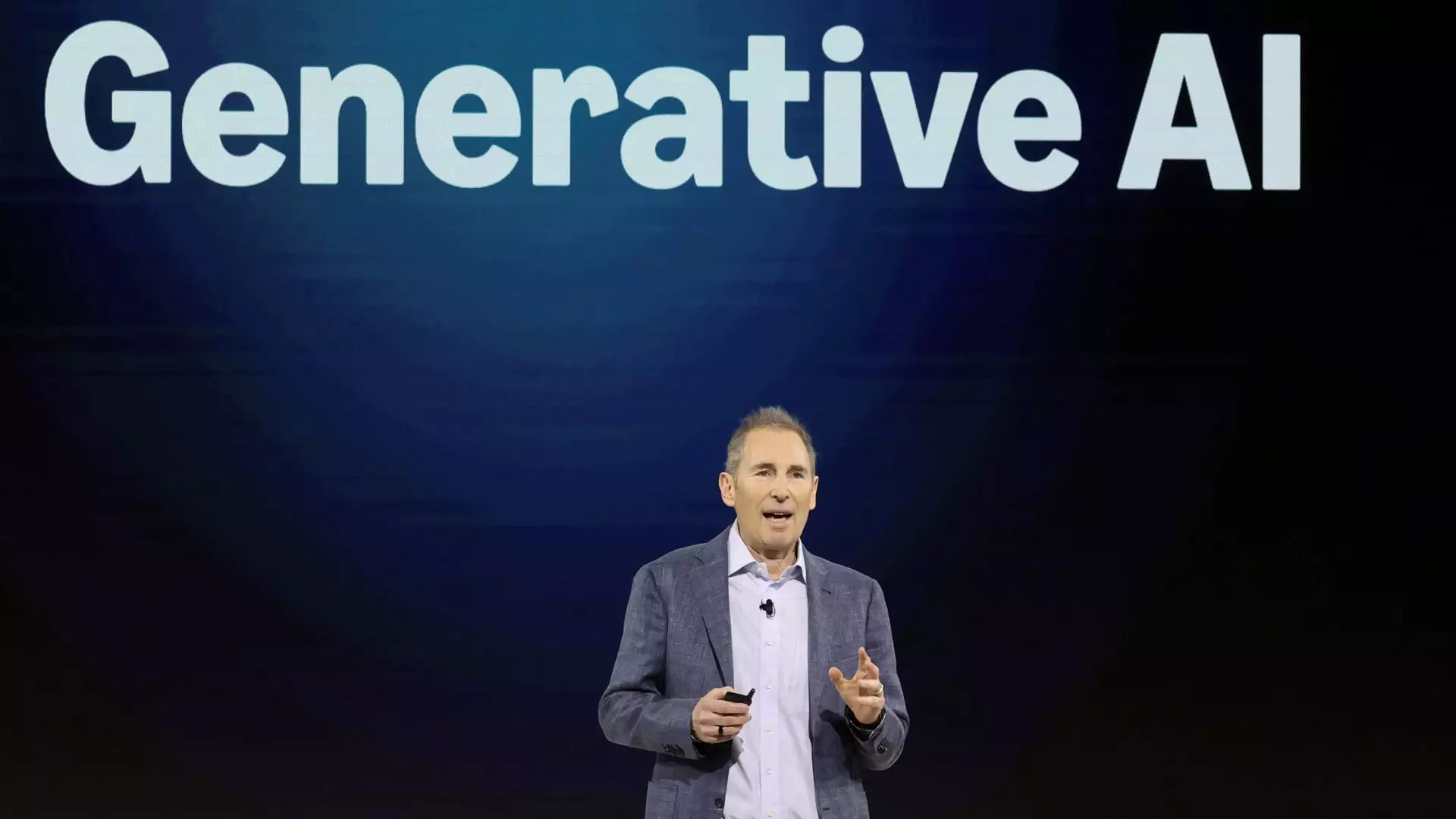In recent months, Amazon has taken significant strides to integrate generative artificial intelligence (AI) into its expansive e-commerce ecosystem, marking what could be a game-changing moment for online retail. The tech giant has begun testing innovative features such as Interests AI, a conversational shopping assistant aimed at complementing the traditional search functions that have characterized its platform. This shift not only signifies a move towards personalized shopping experiences, but also reflects a broader trend within tech where consumer engagement is increasingly shaped by AI technologies.
At the heart of this initiative lies the ability for consumers to articulate their interests in everyday language—effectively replacing the rigid search terms of conventional online shopping. Users can describe what they’re seeking in casual phrases, prompting the Interests AI to curate a selection of products tailored to their descriptions. This enhancement makes the shopping experience less transactional and more intuitive; for example, phrases like “best gifts for coffee lovers” or “fun activities for kids” offer a far richer way to navigate the vast array of products Amazon has to offer.
Amazon’s commitment to utilizing large language models is promising, suggesting an evolution from basic query processing to a nuanced understanding of consumer need. However, while the technology shows potential, it raises questions about transparency and the underlying models that facilitate these translations. What makes Interests AI a revolutionary step isn’t just its ability to suggest products but its ambition to reshape how users interact with the platform, moving toward a conversational model that can foster deeper connections between brand and consumer.
Health Assistants: A New Dimension in Digital Care
Simultaneously, Amazon is venturing into the health and wellness space with the introduction of Health AI, a chatbot designed to assist users with health inquiries and care options. This tool offers a novel approach that blends e-commerce with health information—providing insights on how to manage common ailments, directing users to relevant products, and even referring them to Amazon’s online pharmacy. The incorporation of clinically verified information signifies a serious attempt by Amazon to establish credibility within healthcare, even if it refrains from giving personalized medical advice.
While the potential utility of Health AI is apparent, several concerns arise. The integration of e-commerce with health advice could lead to ethical dilemmas. How will Amazon ensure both the accuracy of its health information and the privacy of its users? The specter of commercialization also looms large; the blend of products and medical advice may inadvertently shift the focus from patient care to profit. Consequently, while Health AI marks an ingenuity in bridging e-commerce and health services, careful scrutiny will be needed to ensure that ethical standards are upheld.
Amazon’s Competitive Strategy and Market Insights
The emergence of these new AI-driven tools comes at a time when competition in the e-commerce realm is becoming increasingly fierce. Other platforms, like OpenAI’s ChatGPT, are also penetrating the marketplace with their AI features. By introducing Interests AI and Health AI, Amazon is positioning itself to not only capture a share of the growing online shopping and healthcare assistance market but to gain invaluable insights into consumer behaviors and preferences.
By analyzing the interactions users have with these AI applications, Amazon can refine its offerings, glean critical data on purchasing patterns, and ultimately tailor marketing strategies to meet the evolving demands of consumers. This intelligence could empower Amazon to diversify its product line or even revamp existing services to better align with consumer expectations. As Amazon collects feedback and dialogues with users, it stands at the brink of potential shifts in its e-commerce model that could resonate across industries.
Transformational Changes on the Horizon
In addition to these consumer-facing innovations, Amazon is also anticipating the launch of Alexa+, an enhanced version of its digital assistant equipped with generative capabilities. This advancement signifies not just an upgrade in voice-activated technologies but a holistic approach to integrating AI throughout Amazon’s ecosystem.
The potential synergy between Alexa+ and tools like Health AI is particularly intriguing. If the new Alexa can discern when to utilize Health AI in response to health-related inquiries, it could signify the beginning of a more responsive and intelligent home assistant, effectively making AI a central figure in day-to-day life. While the details of these integrations remain to be fully realized, the promise of a seamlessly connected AI environment makes for a compelling narrative around the future of consumer technology.
As these features roll out, they will likely influence not just Amazon’s trajectory but set a precedent for the industry, pushing competitors to innovate as well. The implications for consumer behavior and market dynamics ignite a conversation about the potential transformation of e-commerce in our daily lives. With such bold advancements, Amazon is not merely adapting to digital trends; it is steering the future of shopping and health advice, making a formidable statement in the realm of artificial intelligence.

